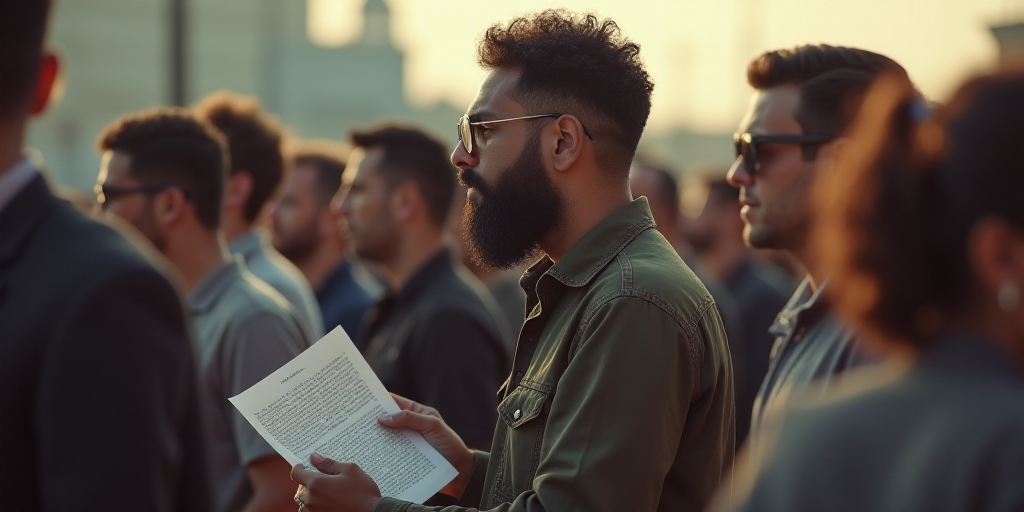Newly Reelected President Focuses on Oil Sector and Economic Development
Guyana’s President Irfaan Ali, who was recently reelected for a second five-year term, has pledged to accelerate oil exploration and push for new participation agreements that will generate more wealth “for the people.”
Background on Guyana’s Oil Wealth and Economic Growth
Guyana, a small nation of approximately 850,000 people, has the world’s highest oil reserves per capita. Its economy is one of the fastest-growing globally, according to the International Monetary Fund (IMF). The country’s oil wealth has quadrupled its state budget in just five years, reaching $6.7 billion for 2025.
Guyana’s per capita income stands at $32,000, the highest in Latin America and the Caribbean. This wealth has enabled significant investments in infrastructure, services, energy, and natural gas.
New Production Sharing Agreement
President Ali has proposed a new Production Sharing Agreement that allocates 10% as royalties, 10% as corporate tax, 65% for cost recovery, and 17.5% for oil profits to the government and investors.
Ali’s administration aims to build new infrastructure, roads, services, energy, and natural gas facilities to transform Guyana into a regional hub for international investments. The president also intends to strengthen economic ties with neighboring countries and promote energy integration.
Moreover, Ali plans to diversify the economy from traditional sectors like mining, agriculture, fishing, and forestry. His party will also push for fiscal reforms.
Addressing the Ongoing Territorial Dispute with Venezuela
President Ali, 45, will need to address a longstanding territorial dispute with Venezuela, which claims sovereignty over Guyana’s Esequibo region—approximately two-thirds of Guyana’s territory.
The dispute intensified in 2015 when significant oil reserves were discovered offshore of the contested territory, estimated at 11 billion barrels. Guyana seeks the UN’s highest court to uphold 1899 border rulings that Venezuela disputes.
Venezuela references the 1966 Geneva Accords, signed before Guyana’s independence from the UK, which annulled the 1899 ruling and laid groundwork for a negotiated solution.
Despite verbal attacks from Venezuelan President Nicolas Maduro, who calls Ali a “puppet” of ExxonMobil, both leaders committed to diplomatic solutions during a meeting in December 2023 amid rising tensions between the countries.
“We seek peace with all our neighbors and defend our sovereignty with calm confidence in the law and firm unity,” Ali stated in his inaugural address.
“We will not only keep our communities safe but also protect our country. This means building the strongest and most modern defense ecosystem in our history, one that shields us from any threat to our sovereignty and territorial integrity,” Ali emphasized.
He further added, “We will align with our international allies and partners to combat transnational crime, drug trafficking, human trafficking, and any criminal act that threatens or undermines peace, freedom, and democracy.”
The United States has deployed warships for drug-trafficking operations in the Caribbean, a move Venezuela perceives as a potential invasion threat.
Key Questions and Answers
- Who is Guyana’s newly reelected president? Irfaan Ali, who was sworn in for a second five-year term.
- What is Guyana’s main source of economic growth? The country’s oil wealth, with the highest reserves per capita globally.
- What is the new Production Sharing Agreement proposed by President Ali? It allocates 10% as royalties, 10% as corporate tax, 65% for cost recovery, and 17.5% for oil profits to the government and investors.
- What is Guyana’s ongoing territorial dispute with Venezuela about? The disagreement centers around the Esequibo region, which makes up two-thirds of Guyana’s territory and contains significant oil reserves.
- How does President Ali plan to address this dispute? He seeks diplomatic solutions and aims to build a strong defense ecosystem to protect Guyana’s sovereignty and territorial integrity.






